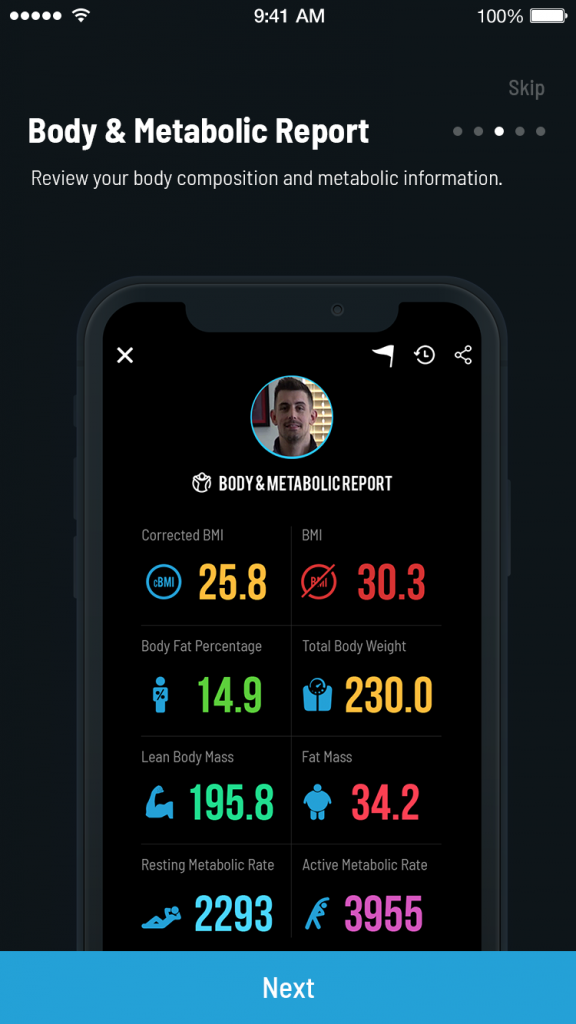
The HealthReel wellness app provides the user with metrics on his or her body composition and metabolism.
Health and fitness have played a role throughout Superbowl champion Obafemi Ayanbadejo’s life. After retiring from the NFL, Ayanbadejo graduated with his MBA from Johns Hopkins University and began pursuing a career as an entrepreneur.
In 2018, he worked with the Strategic Partnerships Office at NASA’s Goddard Space Flight Center to license a patented NASA algorithm with relevance to the health industry, and now, Ayanbadejo is beta testing a new mobile wellness app that seeks to provide highly accurate and detailed metrics on personal health. The app, known as HealthReel, uses the NASA algorithm and a personal smartphone camera to collect data and generate information on an individual’s body fat percentage, ideal caloric intake, and approximate risk for health conditions, among other stats.
The NASA algorithm, known as “Corrected Body Mass Index (BMI),” improves on the traditional BMI formula by taking lean mass into account, resulting in a more accurate measure of health. “Corrected BMI” pairs with HealthReel’s patented computer vision technology and artificial intelligence algorithms to help users efficiently track progress toward their fitness and health goals.
As the founder and CEO of HealthReel, Ayanbadejo says that current methods for measuring and tracking body fat percentage require people to visit specialized facilities and pay hundreds of dollars for an evaluation. HealthReel’s assessment can be done in the user’s home and takes a few minutes to complete, Ayanbadejo says.
For the purpose of beta testing, users will film a 10-second video of themselves, which the app uses in concert with user-provided data to calculate personalized information about the user’s body and metabolism, health risks, and recommendations for improved health outcomes.
Once the beta test is complete, HealthReel will incorporate feedback from early adopters of the app and release a final version sometime next year.
To learn more about technology transfer at Goddard, please visit our webpage on licensing inventions.
